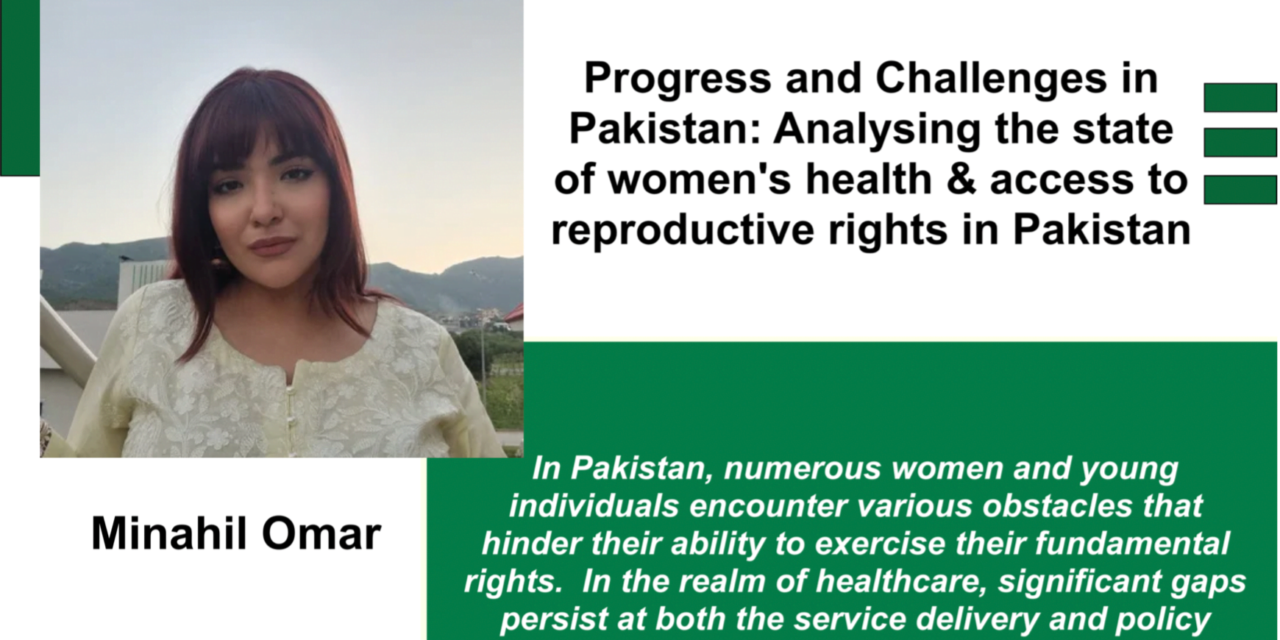Sustainable Development Goal 5 (SDG 5) is a crucial component of meeting the 2030 Agenda for Sustainable Development, devised by the United Nations. The fifth SDG is dedicated to the pursuit of gender equality and empowerment of women and girls. The complete text of the objective is as follows:
“Ensure gender equality and empower all women and girls.”
Restricting women’s bodily autonomy has been identified by UN Women as a manifestation of patriarchal control, observed not only by the state but also within domestic households. In pursuing women’s empowerment, it is crucial to prioritise safeguarding their sexual and reproductive health and rights. This encompasses ensuring access to quality healthcare services, promoting education, and upholding their autonomy to make informed decisions about their health.
The Centre for Reproductive Rights has recently released a report highlighting the government of Pakistan’s alleged failure to fulfil its obligations in safeguarding and advancing sexual and reproductive health rights and services. In Pakistan, numerous women and young individuals encounter various obstacles that hinder their ability to exercise their fundamental rights. In the realm of healthcare, significant gaps persist at both the service delivery and policy levels. This makes the provision of sufficient access to essential health facilities difficult.
The denial of these rights carries detrimental consequences that further worsen the scale of poverty and inequality in the country. Denial of care based on gender, female infanticide, maternal mortality, female genital mutilation, and sexual and gender-based violence are all realities mothers and young girls face due to their increasingly vulnerable status in the country.
The United Nations Population Fund (UNFPA) has highlighted Pakistanis grappling with maternal health and contraception access. The nation is particularly burdened by high maternal mortality ratios, adolescent birth rates, and unmet need for contraception. The Maternal Mortality Rate (MMR) remains alarmingly high in Pakistan, with 186 deaths per 100,000 live births in 2019, a 32% increase from 2017 when there were 140 deaths per 100,000 live births. This statistic represents the challenges pregnant women face and the lack of our healthcare system to facilitate preventable deaths during childbirth.
According to the Pakistan Demographic Health Survey (PDHS), fertility rates in rural communities surpass those in urban areas. Adolescent pregnancies are a growing struggle for Pakistan particularly in rural areas where women average at conceiving 4.2 children. The current state of the contraceptive prevalence rate is a cause for concern, as it remains low at 26 per cent. Keeping in mind cultural stigmas, effective family planning, birth spacing and contraceptive education is essential to ensure a lower number of deaths, particularly amongst young mothers.
Similar is the case with abortion. While Islamic jurisprudence is mandated in Pakistan to allow for abortion under certain circumstances there is an increasing number of unqualified individuals conducting covert abortions. This, alongside no post-abortion care, leads to a myriad of complications and in certain cases can be fatal. Breaking the cultural stigma and raising awareness of safe accessible legal abortions is a long journey ahead starting with qualified health care workers and accessible care during and after the procedure.
According to the World Bank, Pakistan ranks amongst the top ten countries with the highest maternal mortality rates. Recent research shows women residing in underprivileged communities are more likely to be subject to this. These women are forced to bear a disproportionate burden due to the lack of financial security, educational opportunities and higher rates of gender-based violence in their communities.
Prenatal and neonatal cases in the country are scarce. Low-weight babies and women suffering from anaemia and poor nutrition often compromise their health long term. Women here often lack education regarding decision-making in healthcare and this ignorance ends up harming the child and mother both. Poor nutrition and lack of awareness of Prenatal care lead to delivery complications during birth and risk the lives of both individuals.
Furthermore, the issue is worsened by the absence of comprehensive sexual education in school and family settings. Often cultural stigma leads to refusal of receiving such education whereas an all-encompassing approach to sexual education is necessary for young girls and women deciding to start families. The incorporation of necessary subjects such as sexual abuse, health care rights and family planning can prevent maternal mortality rates as well as contribute towards lowering child marriage. The realization of adolescent rights and access to these rights can play a significant role in bettering their status and making us closer to achieving SDG 5. In recent studies, experts have emphasized the importance of effectively implementing current policies to enhance maternal health. These reports particularly highlight the need to prioritize women from low-income backgrounds, marginalized groups, and ethnic communities.
To effectively tackle these challenges, there is a need for collaboration at a governmental and grassroots level. Communicating with communities that are directly affected by these laws and curating policies and awareness campaigns that can target the demographic is important particularly due to the large amounts of cultural stigma attached to women’s reproductive rights. Furthermore, the need for funding for the construction of new healthcare facilities and training competent healthcare professionals, raising awareness about the advantages of antenatal and delivery care, and allocating additional funds to subsidize healthcare services for individuals who require financial assistance is essential to meeting not only SDG 5 but also SDG 3 to ensure healthy lives and well0being for all at all ages.
Writer is a student based in Islamabad.


